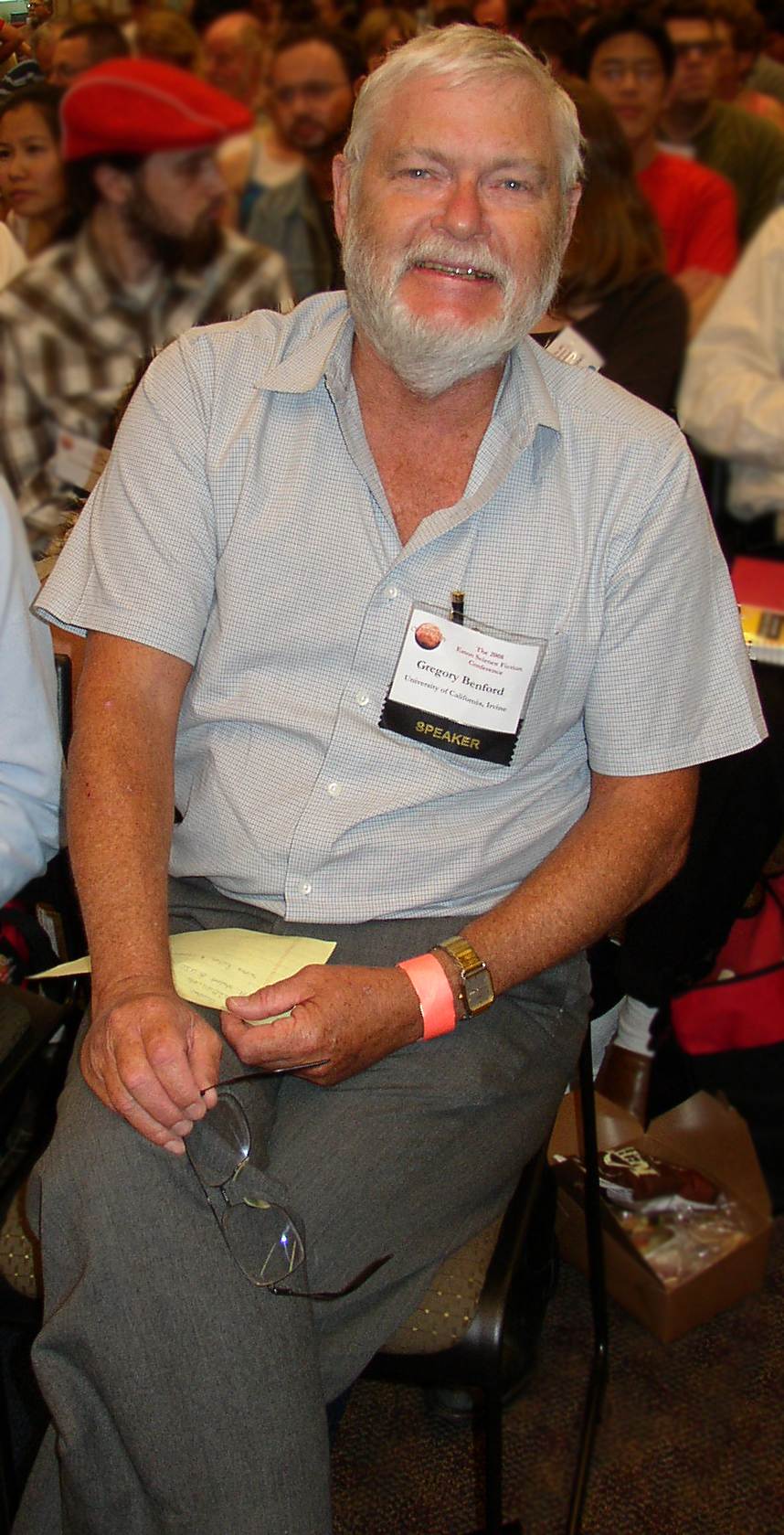Gregory Benford – amerykański pisarz science fiction, a także astrofizyk. Laureat nagród Nebula i Campbella dla najlepszej powieści sf.
Uzyskał licencjat z fizyki na University of Oklahoma w 1963 r., a następnie magisterium na Uniwersytecie Kalifornijskim w San Diego w 1965; tamże doktoryzował się w 1967 r. Obecnie pracuje na Wydziale Fizyki i Astronomii Uniwersytecie Kalifornijskim w Irvine.
Jako pisarz sf debiutował w 1965 r. opowiadaniem Stand-In opublikowanym w „The Magazine of Fantasy & Science Fiction“. Od 1969 rozpoczął prowadzenie kolumny naukowej w Amazing Stories. Zgodnie ze swym wykształceniem tworzy głównie hard science fiction. Najbardziej znanym jego dziełem jest cykl Saga Centrum Galaktyki, opowiadająca o nierównej walce niedobitków ludzkości ze sztuczną inteligencją.
Powieść Timescape została nagrodzona Nebulą i nagrodą Campbella. Drugą Nebulę otrzymał za nowelę If the Stars Are Gods .
Benford twierdzi, że w latach 60., po raz pierwszy opisał wirus komputerowy.
W 1967 r. ożenił się z Joan Abbe. Ma brata bliźniaka, Jima, z którym współpracuje przy tworzeniu prozy fantastycznej.
Wikipedia
✵
30. Styczeń 1941
